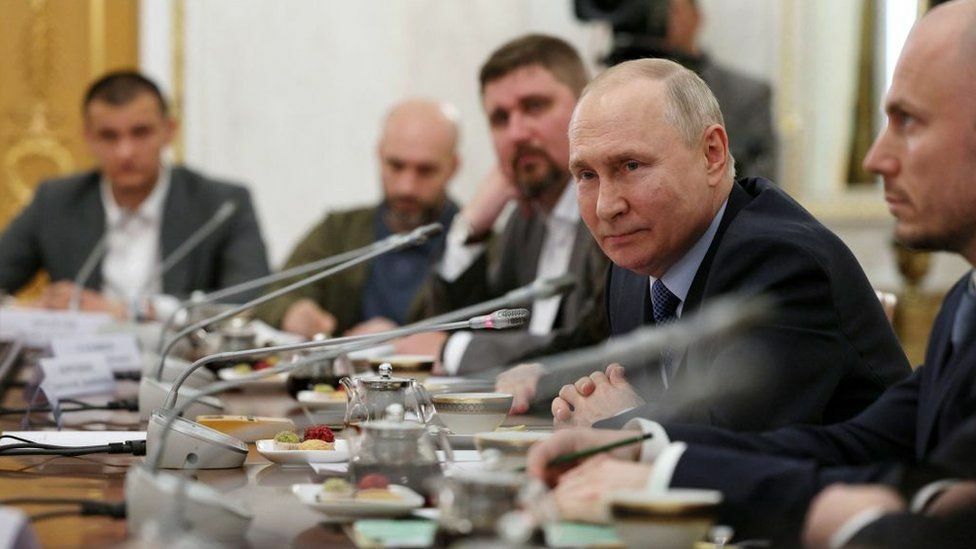Putin claims Ukrainian losses ‘catastrophic’, Zelensky denies failing counter-offensive

Vladimir Putin, the Russian President, has stated that the Ukrainian counter-offensive has been largely unsuccessful, with the Ukrainian army experiencing significant losses. He claimed that Kyiv’s losses were nearing a “catastrophic” level during a meeting with war correspondents. However, this information has not been verified, and Ukrainian President Zelensky has denied that the counter-offensive is failing.
“There is movement forward,” Zelensky said in his nightly video address, expressing gratitude towards Ukrainian troops for “every step and every metre of Ukrainian land that is being liberated from Russian evil”. Valery Zaluzhny, the commander-in-chief of Ukraine’s armed forces, also shared a similar sentiment on Telegram, stating that there have been “some successes, we are implementing our plans, moving forward”.
The counter-offensive operation by Kyiv is still in its initial stages, with modest gains made in the eastern Donetsk and south-eastern Zaporizhzhia regions. Zelensky has also reported advances in Bakhmut. However, the situation is not as straightforward as the earlier claims of liberation from Kyiv. On Tuesday, the BBC was granted access to some of the first settlements in eastern Donetsk where the Ukrainian flag is now flying. Many of these areas are deserted, and in some instances, Russian forces are pushing back.
NATO chief Jens Stoltenberg acknowledged that it is still “early days” but noted progress in repelling Russian troops. “What we do know is that the more land that Ukrainians are able to liberate, the stronger hand they will have at the negotiating table,” he told US President Joe Biden during a meeting at the White House.
Putin claimed, without providing evidence, that the Ukrainians had lost over 160 tanks while Russia had lost 54. He also suggested that Ukraine’s troop losses were ten times greater than Russia’s, insisting that Kyiv had not succeeded “in any of the sectors”. A US official, who chose to remain anonymous, dismissed Putin’s comments as “not accurate” and cautioned against taking Moscow’s public assessments seriously.
Although most of Putin’s statements during his meeting with war correspondents were self-congratulatory, he did admit that Moscow could have better anticipated recent cross-border attacks into Russia from Ukraine. Putin also suggested that Russia was lacking “high-precision ammunition, communications equipment, aircraft, drones, and so on”, despite an increase in weapon production over the past year. Ukraine has long held concerns about Russia’s ability to build weaponry.
On Tuesday, Zelensky once again called for tougher sanctions to halt the flow of weapon components, some of which he said were being manufactured by Ukraine’s partner countries. He stated that Russia was using such components to build the type of missiles that struck an apartment building and warehouses in Kryvyi Rih on Tuesday, resulting in 11 deaths and dozens of injuries.
In related news, the US announced that it would send a new military aid package to Ukraine worth US$325 million. Additionally, Belarusian leader Alexander Lukashenko suggested that his country was receiving nuclear weapons from Russia that were “three times more powerful” than the atomic bombs used in Hiroshima and Nagasaki. He did not specify whether they had already received the weapons or not but claimed their deployment to Minsk was necessary to deter potential aggression. Earlier this month, Russia announced its plan to deploy tactical nuclear weapons on Belarusian soil from July, which was perceived as a warning to the West, which has been increasing its military support for Ukraine.
Latest Thailand News
Follow The Thaiger on Google News:


























